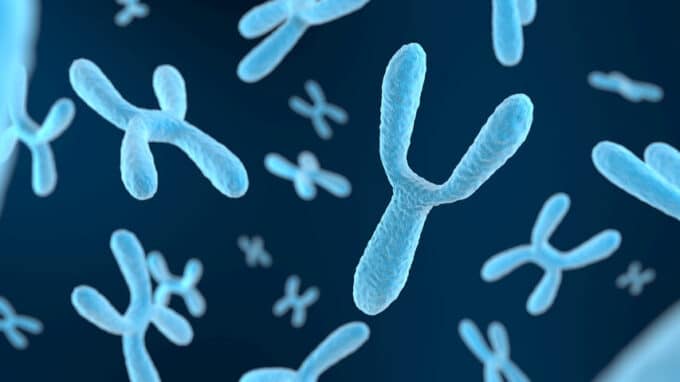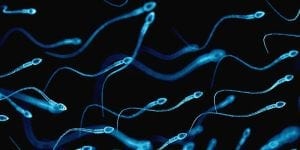Researchers at Crick have discovered which genes on the Y chromosome regulate sperm development and affect fertility in male mice. This research could help to understand why some men do not produce enough sperm and are infertile.
Several Y-Linked Genes are Crucial for Reproduction
Men typically have one copy of the Y chromosome and one copy of the X chromosome, while women typically have two X chromosomes. Scientists know that the Y chromosome is essential for male fertility, but which genes are most important and how they work is less clear. In a study published in Science, a research team at the Crick solved this question by creating thirteen different mouse models, each with different Y genes removed, and examining their fertility.
The researchers examined the ability of these adult mice to reproduce, including the number of offspring, the number of sperm produced, and the appearance and motility of the sperm. They found that several Y-genes were essential for reproduction. When these genes were removed, the mice could not father any young because there were no or only a small number of sperm, no reservoir of sperm stem cells was formed, or the sperm had an abnormal shape or movement.
Interestingly, some other genes had no effects when removed individually but led to the formation of abnormal sperm when removed together. This was the case for a group of three genes that model a region of the chromosome called AZFa in humans. AZFa deletions are a common cause of the most severe cases of male infertility, but it has been difficult to tell which genes in the region are responsible. The results suggest that many Y-genes play a role in fertility and can compensate for each other when one gene is lost. This also means that some cases of infertility are likely to be due to the deletion of several genes at once.
In the Past, the Y Chromosome was Misunderstood
Some Y genes not only regulate sperm formation, but are also active in other organs such as the heart and brain, where they may be very important. In addition, some men may lose their Y chromosomes in the blood with age due to errors in cell division. This loss is associated with diseases such as Alzheimer’s or cancer. Therefore, the laboratory is now trying to understand what happens in other organs of mice with Y-gene deletions.
Jeremie Subrini, a postdoctoral fellow in the Laboratory for Sex Chromosome Biology at the Crick and first author, said: “Our research has shown that more Y-genes are required for fertility in mice than initially thought. We found that some genes are essential, while others have a cumulative effect. In the past, the Y chromosome was misunderstood. For a long time, it was thought to be nonessential in adults, and some even assumed it would disappear altogether. We now know that this is clearly not the case!”
Replacing Missing Genes in the Cells that Build Sperm
According to James Turner, Principal Group Leader of the Sex Chromosome Biology Laboratory at the Crick and senior author, infertility is a major problem, with one in six couples having difficulty conceiving. In a significant proportion of cases, genetic factors, particularly those affecting the Y chromosome, are the cause. However, according to the researcher, it was difficult to determine the details, partly because sequencing and studying the Y chromosome was technically challenging.
Now that researchers have a more thorough understanding of Y-genes, it is important to sequence the Y chromosome in more individuals to uncover possible unexplained causes of male infertility. With more research, it may be possible one day to replace missing genes in the cells that make sperm to help couples have offspring through IVF.





